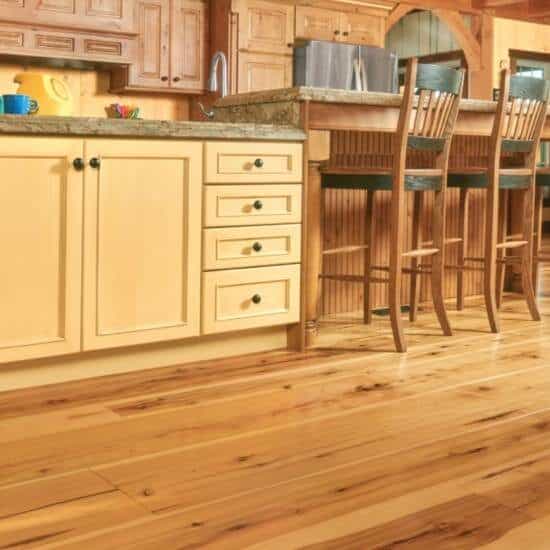Life throws a lot of hard decisions our way – some big, some small . . . and some flooring. Whether you are remodeling or constructing a new build for a home or business, choosing the right flooring is key. Both hardwood and tile flooring offer many benefits. Both options can provide warmth for a home or an upscale professional feel for a business. Both come in a variety of colors and designs to suit your aesthetic. The question is, what makes them different? And, how can you choose?
Differences Between Tile & Hardwood Flooring
When choosing between tile and hardwood flooring, consider factors such as your lifestyle, budget, design preferences, maintenance requirements, and the specific needs of each room. Here are some key differences between tile and hardwood flooring that will help you make your decision.
Material
- Tile flooring is typically made from ceramic, porcelain, or natural stone materials. These materials are durable, water-resistant, and available in a wide range of colors, patterns, and textures.
- Hardwood flooring is made from solid wood or engineered wood planks. It offers warmth, natural beauty, and timeless elegance. Hardwood floors are available in various wood species, finishes, and plank sizes.
Appearance
- Tile flooring can mimic the look of natural stone, wood, or other materials. It offers versatility in design and allows for creative patterns and layouts.
- Hardwood flooring provides a warm and inviting ambiance with its natural wood grain, knots, and unique character. It adds warmth and richness to any space and complements various interior styles.
Durability
- Tile flooring is highly durable and resistant to scratches, stains, and moisture.
- Hardwood flooring is also durable but may be more prone to scratches, dents, and water damage compared to tile. However, engineered hardwoodoffers increased resistance to moisture and is suitable for humid environments.
Maintenance
- Tile flooring is easy to clean and maintain, requiring regular sweeping, mopping, and occasional grout cleaning or sealing.
- Hardwood flooring requires regular sweeping, vacuuming, and occasional polishing or refinishing to maintain its appearance and durability. It is essential to clean up spills promptly and avoid excess moisture.
Comfort and Warmth
- Tile flooring can feel cold and hard underfoot, especially in colder climates. However, it provides a cool and refreshing surface in warmer climates.
- Hardwood flooring offers warmth and comfort underfoot, making it ideal for bedrooms, living rooms, and areas where you spend a lot of time barefoot.
Consider Your Space
Choosing between tile and hardwood flooring ultimately comes down to personal preference, lifestyle, and the specific needs of your space. Tile flooring offers durability, water resistance, and versatility in design, making it suitable for high-traffic areas and moisture-prone areas like kitchens and bathrooms.
On the other hand, hardwood flooring provides warmth, natural beauty, and timeless elegance, enhancing the ambiance of any room. Consider factors such as maintenance requirements, comfort, and long-term durability when making your decision.
Get Some Expert Flooring Guidance
Our team at Wide Plank Floor Supply would love to provide you with valuable insight and guidance to help you select the perfect wide plank flooring option that meets your needs and complements your home or business aesthetic. With the right choice, you can enjoy years of beauty, comfort, and functionality in your space.

